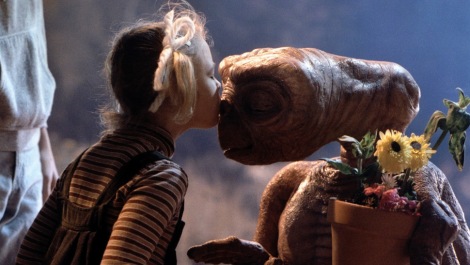Steven Spielberg: Director’s Collection

Critics embrace directors’ box-sets as a chance to locate pointers to filmmakers’ later work in their early years. Despite its glaring absences, this Universal boxset invites a rethink of any such simple reading of Spielberg’s creative curve. Its eight films are hardly representative; that’s evident. But as a reminder that his curios, misfires and successes alike feature surprises alongside signposts, it offers something besides covetable book-style packaging and four new-to-Blu collection-fillers (Duel, The Sugarland Prompt, 1941, Always).
Spielbergian signatures fuel 1971’s made-for-TV Duel, from its unknowable predator (a truck) to its cinematic feel for action. But it’s also leaner and bleaker than later ’Berg, as is The Sugarland Prompt (1974). The opening shots of road signs suggest a director looking for management, which is right in many ways: Spielberg’s lovers-on-the-lam movie is like a surreal cross between Robert Altman and Road Runner.
His next film made him the godhead of summer cinema, but even one of his best-known works can transcend familiarity. Jaws (1975) is a study in restraint: if its on-screen control contrasts with its chaotic shoot, so does it challenge Spielberg’s rep as a director who never under-eggs emotions.
Restraint is shot to shreds in 1941 (1979), a Pearl Harbor farce doomed from its premise… and then doomed some more by a payload of pratfalls, explosions and flight-fetish innuendo. The bolt from the blue is that Spielberg plotting it worth trying his hand at satire, especially given his later mutation into Hollywood’s liberal historian of choice. Thankfully, he rediscovered restraint for E.T.: The Extra-Terrestrial (1982), despite it becoming a byword for blub-a-thon excess.
1989’s mourning melodrama Always lacks E.T.’s emotional assurance: Richard Dreyfuss and Holly Hunter’s pairing grates, but flaming trees make a fine unknowable foe and the fleeting sequences thrill.
The set-pieces in The Lost World (1997) don’t slouch either, but its 1993 predecessor arguably stands as Spielberg’s last hurrah in supreme family entertainer mode. With dinosaurs included as standard in any CG spectacle these days, Jurassic Park shouldn’t merit do again viewings. But its mix of taut pacing, emotional hooks and hungry objects in rear-view mirrors proves this much: that Spielberg’s evolution still finds ways to reward exploration.
![]()












